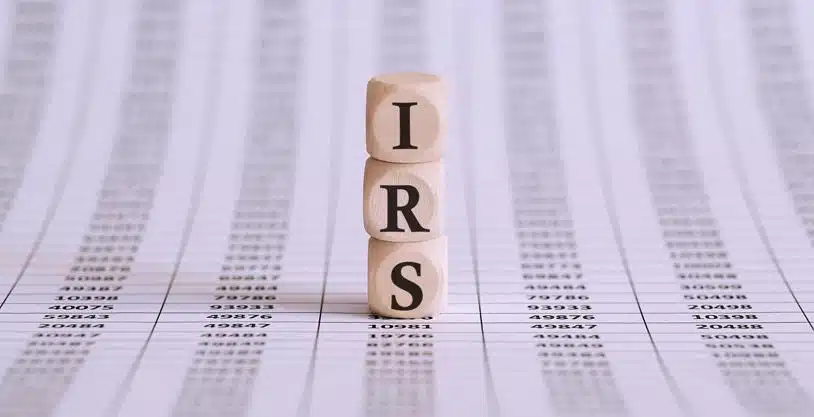Tax Lawyers in Chicago
Chicago tax problems? We’ve got your back.
At TaxLawyer.com, we connect Chicago taxpayers with skilled tax attorneys in Chicago who handle audits, back taxes, crypto tax, and more. You keep up the hustle, and we’ll handle the IRS.

Book A Consultation

Tax Law in Illinois
Illinois imposes a flat 4.95% individual income tax and a 9.5% corporate income tax. The state sales tax rate is 6.25%, but local surtaxes push the combined average to 8.86%. Property taxes are among the highest in the nation. The Illinois Department of Revenue (IDOR) is responsible for tax enforcement and administration.
Facing tax issues? TaxLawyer.com links Illinois taxpayers with skilled Illinois tax attorneys to resolve disputes, audits, and tax liabilities.
Find the Best Tax Lawyers in Chicago
At TaxLawyer.com, we link hardworking Chicagoans with top-tier Chicago tax lawyers who handle everything from IRS audits to Illinois revenue disputes. Whether you’re flipping properties in Bronzeville or building a brand in the West Loop, we’ll connect you with the best tax lawyer in Chicago to keep your momentum strong and your finances protected.
Skip the stress of digging through listings, get matched with the right Chicago tax attorney today at TaxLawyer.com.
Tax Trouble in Chicago? Protect Your Finances with Expert Guidance
Tax Lawyer Services in Chicago
Tax Planning
Chicago’s layered tax structure demands strategic foresight.
Our team of experienced Chicago tax lawyers help residents and businesses reduce tax exposure, leverage deductions, and navigate compliance with federal, state, and local tax laws, including Cook County and City of Chicago ordinances.
Payroll Taxes
Managing payroll taxes in Chicago is vital to business stability.
Our experienced Chicago tax attorneys provide full-spectrum payroll tax compliance, resolve disputes with the Illinois Department of Revenue and IRS, and implement safeguards against future liabilities.
IRS Audit
An IRS audit in Chicago can quickly escalate without the right representation.
Our Chicago tax lawyers defend against overreaching assessments, negotiate directly with agents, and protect your financial standing at every step of the audit process.
IRS Tax Evasion
Allegations of IRS tax evasion carry high penalties.
Our seasoned Chicago tax lawyers provide robust defense strategies, work to reduce or eliminate penalties, and resolve criminal tax matters with efficiency and discretion.
Sales and Use Tax
Chicago businesses face some of the most complex sales and use tax rules in the country.
Our top Chicago tax attorneys help navigate overlapping tax jurisdictions, challenge erroneous assessments, and secure applicable exemptions to reduce tax burdens.
Back Taxes
Struggling with back taxes in Chicago?
Our top-rated team of IRS tax lawyers Chicago negotiate manageable repayment terms, eliminate penalties where possible, and protect you from wage garnishment and asset seizures.
IRS Voluntary Disclosure Practice
Need to come clean about unreported income?
Our knowledgeable Chicago tax attorneys guide you through the IRS Voluntary Disclosure Program, reduce penalties, and restore your compliance status with minimal risk.
IRS Wage Garnishment
Wage garnishment in Illinois can devastate your cash flow.
Our tax attorney Chicago intervenes quickly, stop garnishments, and work out settlements that allow you to recover financially while resolving tax debt.
IRS Crypto Tax
Crypto tax reporting is strictly enforced in Illinois.
Our seasoned IRS tax attorneys Chicago help you comply with evolving IRS rules, minimize crypto-related liabilities, and prevent audits and penalties.
Offshore Income & Tax
Earn income abroad?
Our team of highly-skilled Chicago international tax lawyers help secure compliance, protect offshore assets, and reduce tax exposure under FBAR, FATCA, and related federal reporting laws.
IRS Tax Lien
An IRS lien in Chicago can affect your assets and credit profile.
Our skilled tax attorney Chicago negotiate lien releases, resolve back taxes, and help you reclaim your financial freedom.
Tax Levy
Facing a tax levy in Chicago?
Our experienced IRS tax lawyer Chicago act immediately to halt seizures, negotiate tax relief, and protect your assets from IRS collections.
Unfiled Tax Returns
Unfiled tax returns can lead to serious consequences.
Our Chicago tax lawyers file overdue returns, prevent criminal charges, and work to restore full compliance with the IRS and Illinois Department of Revenue.
Why Work With Our Tax Lawyers in Chicago
Tax Law Specialists
Chicago’s layered tax system – city, county, and state – demands expert insight. Our experienced IRS Chicago tax lawyers specialize in IRS audits, business taxes, and resolving multi-jurisdictional tax issues with accuracy and efficiency.
Assistance Every Step of the Way
Tax problems in Chicago? You’re not alone. Our experienced Chicago tax lawyers advocate for you through audits, disputes, and back-tax negotiations, protecting your financial future every step of the way.
Educational Resources
Tax rules in Illinois can be tricky. Our Chicago tax guides and blogs simplify federal, state, and local obligations, offering clear strategies for compliance, deductions, and smarter tax decisions.
United States Tax Law Blogs
-
CRA vs. IRS Service Levels: A Cross-Border Comparison of Tax Administration Risks for Canadian and U.S. Taxpayers
Overview: Why Administrative Performance Matters in Cross-Border Tax Planning For taxpayers operating in both Canada…
-
IRS Service Levels for the 2026 Tax Filing Season: What Recent IRS Performance Means for U.S. Taxpayers
Overview: IRS Service Levels and Administrative Risk in U.S. Tax Compliance The Internal Revenue Service…
-
How American ‘Jock Tax’ and State Income Tax Affect NFL Players, Other Professional Athletes: The Sam Darnold Super Bowl Example
The “jock tax” remains one of the most complex and strategically significant areas of U.S.…
Frequently Asked Questions
How do taxes work in Chicago?
Chicago does not impose a local income tax, so residents only pay the state (Illinois) flat income tax rate of 4.95%. The minimum combined sales tax rate for Chicago, Illinois is 10.25%. This is the total of state, county, and city sales tax rates, including: Illinois state sales tax: 6.25%, Cook County tax: 1.75%, City of Chicago tax: 1.25%, and Regional Transportation Authority (RTA) tax: 1%. Illinois also imposes an estate tax on estates over $4 million but has no inheritance tax.
Beyond these, Cook County collects property taxes, reassessed triennially. Businesses face state corporate income tax, sales tax collection duties, and potential local taxes. The Illinois Department of Revenue, Cook County Treasurer’s Office, and the City of Chicago Department of Finance all play roles in tax collection.
How is income taxed in Chicago?
Chicago residents are subject to income tax through the state of Illinois. There is no income tax levied by the city of Chicago itself. Residents pay a flat individual income tax rate of 4.95%, meaning all taxable income is taxed at this percentage regardless of income level.
Retirement income, including Social Security benefits, pensions, 401(k) distributions, and IRA withdrawals, is exempt from state income tax. However, residents must still pay federal income tax on these earnings.
Businesses operating in Chicago are subject to Illinois’ corporate income tax rate of 9.5%. This rate is the combination of the business income tax and the personal property replacement tax. All of these taxes are administered by the state of Illinois.
What income is not taxed?
The state of Illinois and the city of Chicago exempts several types of income from taxation, reducing the overall tax burden for certain individuals:
- Retirement Income: Social Security benefits, pensions, 401(k) distributions, IRA withdrawals, and other qualified retirement income are not subject to Illinois state income tax. However, they remain taxable at the federal level.
- Certain Military Benefits: Active-duty military pay and military retirement pay are exempt from Illinois state income tax.
- Municipal Bond Interest: Interest earned from Illinois municipal bonds is not taxed by the state.
- Railroad unemployment benefits: Railroad Unemployment is the only type of unemployment income that is not taxed by Illinois.
- Certain Educational Scholarships & Grants: Some scholarships and grants used for tuition are tax-free.
While the state of Illinois has a flat 4.95% state income tax, these exemptions provide significant tax relief for retirees and certain taxpayers.
Are there any tax exemptions?
Yes, Chicago offers several tax exemptions to reduce tax burdens for residents and businesses:
- Retirement Income Exemption: Social Security benefits, pensions, 401(k) distributions, and IRA withdrawals are not subject to Illinois state income tax.
- Property Tax Exemptions: Homeowners can benefit from exemptions such as the General Homestead Exemption, Senior Citizens Homestead Exemption, and Disabled Veterans Exemption, which reduce taxable property value.
- Sales Tax Exemptions: Groceries, prescription medications, and medical devices are taxed at a reduced 1% rate, while some manufacturing and agricultural equipment purchases are fully exempt.
- Estate Tax Exemption: Estates valued under $4 million are exempt from Illinois’ estate tax.
These exemptions help lower tax liabilities for eligible taxpayers.
How much does a tax lawyer cost in Chicago?
Chicago tax lawyer fees vary depending on the scope of services – ranging from IRS disputes to corporate tax structuring and penalty relief.
At Taxlawyer.com, we help Illinois residents connect with top-rated Illinois tax attorneys who offer expert guidance without unnecessary financial strain.
How to hire a tax lawyer near me
Tax issues in Chicago whether state audits, IRS disputes, or business tax planning, require an experienced Chicago tax attorney. Here’s how to choose the right one:
- Determine your tax concerns: Unpaid taxes, penalty relief, audits, or corporate tax matters.
- Verify legal credentials: Ensure the Chicago tax lawyer is licensed and specializes in tax litigation or planning.
- Set up an initial consultation: Review potential solutions and legal strategies.
- Clarify costs and expectations: Understand all legal fees before proceeding.
At TaxLawyer.com, we simplify the process by connecting Illinois residents with qualified Chicago tax lawyers.


